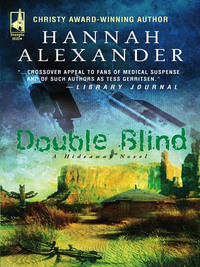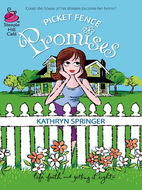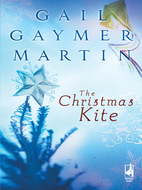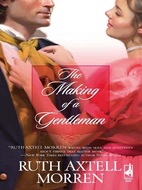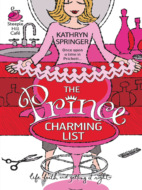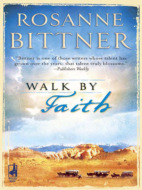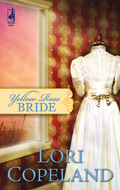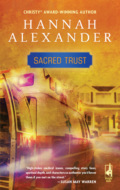Książki nie można pobrać jako pliku, ale można ją czytać w naszej aplikacji lub online na stronie.
Czytaj książkę: «Double Blind»
Double Blind
Hannah Alexander
MILLS & BOON
Before you start reading, why not sign up?
Thank you for downloading this Mills & Boon book. If you want to hear about exclusive discounts, special offers and competitions, sign up to our email newsletter today!
Or simply visit
Mills & Boon emails are completely free to receive and you can unsubscribe at any time via the link in any email we send you.
Contents
Acknowledgments
Chapter One
Chapter Two
Chapter Three
Chapter Four
Chapter Five
Chapter Six
Chapter Seven
Chapter Eight
Chapter Nine
Chapter Ten
Chapter Eleven
Chapter Twelve
Chapter Thirteen
Chapter Fourteen
Chapter Fifteen
Chapter Sixteen
Chapter Seventeen
Chapter Eighteen
Chapter Nineteen
Chapter Twenty
Chapter Twenty-One
Chapter Twenty-Two
Chapter Twenty-Three
Chapter Twenty-Four
Chapter Twenty-Five
Chapter Twenty-Six
Chapter Twenty-Seven
Chapter Twenty-Eight
Chapter Twenty-Nine
Chapter Thirty
Chapter Thirty-One
Chapter Thirty-Two
Chapter Thirty-Three
Chapter Thirty-Four
Chapter Thirty-Five
Chapter Thirty-Six
Chapter Thirty-Seven
Chapter Thirty-Eight
Chapter Thirty-Nine
Chapter Forty
Chapter Forty-One
Chapter Forty-Two
Chapter Forty-Three
Chapter Forty-Four
Chapter Forty-Five
Chapter Forty-Six
Epilogue
Acknowledgments
We are always grateful to our editor, Joan Marlow Golan, and her wonderful staff and colleagues, Krista Stroever, Emily Rodmell, Lee Quarfoot, Megan Lorius, Maureen Stead, Amy Jones and Diane Mosher, for untiring editorial support, marketing and encouragement.
Thanks to our agent, Karen Solem, for great direction and wisdom.
Thanks, again, to Mom, Lorene Cook, for going far beyond the high calling of motherhood to help us in every sort of situation imaginable, whether it be reading, editing, publicity, cooking or catsitting. We love you.
Thanks to Vera Overall, Mother, who always encourages us and shows her pride in her son.
Thanks to Barbara Warren of the Blue Mountain Editorial Service for spotting problems before they become a part of the book.
Thanks to Jerry and Mary Lou Baugher for their love and hospitality, whose experience serving in a Navajo school was a great benefit.
Our deepest debt is to our Lord, who allows us to keep working at playing.
Chapter One
C urved, white wolf fangs gleamed against the blackness of Sheila Metcalf’s closed eyelids. She winced, eyes opening wide as a clipboard slipped from her fingers for the second time in less than an hour. It clattered onto the tile floor of the private patient room of Hideaway Hospital. As the sound reverberated into the hallway, her neck and shoulder muscles knotted with anxiety.
She glanced at the bed, where her patient, Mrs. Mann, remained asleep. At least the commotion had not disturbed her. Sheila only wished she didn’t feel so disturbed this morning…so unsettled, with an old, haunting, long-suppressed nightmare threatening, more than once, to follow her into her waking hours.
“Hey, girl, what’s up?” Jill Cooper, slender, dark haired and attractive, strode into the room at her usual brisk pace. She rescued the clipboard from the floor, glanced at it, then gave Sheila a look of concern. “Something wrong?”
“Sorry,” Sheila said. “I’m fumble fingers this morning for some reason.”
“Time for a break.” Jill’s voice was filled with the concern so evident in her gentle blue eyes. With her typical economy of movement, she set the clipboard on the nursing desk, then turned again to Sheila. “Why are you a fumble fingers?”
“I’m just distracted. I promise I’m not usually like this.”
“Think I don’t know that?” As nurse director of Hideaway Hospital, Jill had every right to question a substitute nurse’s bumbling mistakes, but her concern was warm and personal.
Sheila tried to smile, and knew the result was more of a grimace. She and Jill had known each other since Sheila had fled here to Hideaway with her father twenty-four years ago. The older sister of one of Sheila’s best friends in school, Jill understood what it was like to live with specters from the past.
Jill took a step closer. “So what’s the distraction?” she asked softly. “Want to talk about it?”
Sheila thought about the shadows of memories that never quite materialized, questions that had returned to nag at her after all these years. The fangs. The terror.
“Relax,” Jill said. “We don’t eat nurses for breakfast.”
Sheila forced a smile. The confessions could wait until later. “Dr. Jackson tells me differently.”
Jill chuckled. “Call her Karah Lee, and don’t listen to a thing she says. I picked on her a little when she first arrived, and she’ll never let me live it down.” Jill’s blue eyes turned serious again. “What is it?”
“Just stuff. I’ll get it figured out, don’t worry.”
“All the same, I think you need some downtime. A few minutes to regroup.” Jill reached into the pocket of her scrub top and pulled out a stethoscope. “Besides, Preston Black is in the building.” She said the words with one eyebrow raised, a half grin on her face. “He wants to talk to you.”
Sheila ran the tip of her tongue along her teeth to keep herself from saying anything. Preston didn’t understand the word no.
Jill held up her hands, correctly reading Sheila’s expression, her blue eyes twinkling. “Don’t blame me. I didn’t tell him you were working today, he just saw your Jeep in the lot. He’s placing a bid for the upcoming construction on the hospital, and he’s come to talk to our new comptroller, Doris Batson.” Jill winked. “You’d better keep your hands on that man. Doris is one of my best friends from high school, and I can tell you from personal experience that she’s a hunk magnet. Half the men in the hospital are already drooling over her.”
Sheila gave a pointed glance toward Mrs. Mann, in the bed across the room. Though the casual atmosphere here was a relief from the tension in her old job, Sheila hoped the staff didn’t make a habit of discussing personal issues in front of the patients.
“Mrs. Mann isn’t wearing her hearing aids,” Jill assured Sheila. “I keep trying to get her to put them in her ears, but she refuses. Says they garble everybody’s voices.”
As Jill stepped to the patient’s bed, she glanced over her shoulder at Sheila and jerked her head toward the door. “Out. Now. That’s a direct order. Even if you don’t talk to Preston, you need a break.”
“Where is he?”
“Front office, chatting to Blaze Farmer last I saw him. I’ll see you in the break room in a few minutes, and you can tell me all the juicy details, including this strange desire you suddenly seem to have to go to Arizona.”
Sheila’s eyes narrowed. “Preston can’t keep his mouth shut.”
“Actually, I think it was Blaze who blabbed for all to hear, and you know what good buds Preston and Blaze are. Was it supposed to be a secret?”
“Not necessarily, but it wasn’t something I wanted to be discussed by everyone in the break room, either.”
Jill pointed her thumb toward the hallway. “Out. We’ll talk about it later. Try to grab a cruller before Karah Lee and Blaze eat them all.”
Sheila sighed. Jill laughed. Mrs. Mann grunted, and Jill leaned over the bed, pressing her fingers to the elderly lady’s wrist.
“How are you feeling this morning, my dear?” she shouted.
Mrs. Mann gave Jill a look of complete trust. Sheila recognized the expression, because she’d been the recipient of that kind of trust from her patients many times. She had to keep reminding herself she was a good nurse.
A good nurse. Yes. She was.
When Clark Memorial Hospital in Branson lost federal funding last month, there had been some major layoffs. Though Sheila had worked there for five years, she still lacked enough seniority to save her job.
Amazing how losing a position, even when it wasn’t personal, certainly felt personal. With the population growth in this region of the state, the labor market was wide-open…except for registered nurses, it seemed. She’d discovered, when she went looking for a job, that there were a lot of mature nurses retiring to Branson to work part-time. She couldn’t find a job. Now she was per diem at three regional hospitals, and until she could get back on her feet financially, she’d moved in with her father on the farm a mile from Hideaway.
Shaking her head, Sheila stepped quietly from Mrs. Mann’s room into the wide hallway. It would be easily expected for anyone to ask why on earth a thirty-four-year-old woman would find it necessary to get back on her feet. But it would be more pertinent to ask why she’d been so inept at choosing a husband in the first place. Ryan’s irresponsible money management had been apparent to her long before his untimely death, but his romantic affairs had not. She couldn’t forgive herself for having such blind trust in him through ten years of marriage.
In an effort to escape her bad memories, she’d recently reverted to her maiden name. The change wouldn’t keep the creditors at bay, but she no longer wanted to be identified with the man who had betrayed her in so many ways.
Still, she’d rather be dealing with the difficulties caused by a faithless husband than the situation that had arisen this past weekend.
Every time Sheila closed her eyes, the imprint of black letters announcing the deaths of two of her childhood friends superimposed on her lids. The names had stirred only dim memories when she’d first read the letter two days ago but the impact of the deaths, the call of a time long past, had grown more and more disturbing during this morning’s work.
The familiar sounds of distant laughter, coughing and the moan of an elderly lady with dementia down the hallway, all helped Sheila focus a little more on her current job, but not completely. The past kept intruding on her thoughts—especially the loss that she had never reconciled in her heart or in her life.
The resurfacing memories scraped raw her nerves and set her heart beating double-time. Those recent deaths were tragedy enough, but she’d been forced to admit to herself this morning that they had been only the catalyst for a deeper horror that had haunted her for twenty-four years.
She walked toward the early May sunlight streaking through the blinds at the end of the hallway. Why had the past suddenly become so relevant to her again after all this time?
Her father hadn’t intended for her to see the obituary announcement for Tad and Wendy Hunt. Maybe Dad had the right idea. And maybe Sheila shouldn’t have been such a snoop—even though the letter had suggested that she might be able to step into the breach created in the clinic by the sudden rash of deaths at the school. Tad and Wendy weren’t the only ones who had died.
“Hey, stranger,” came a warm, deep voice. Preston Black stepped from the stairwell into that May sunshine at the end of the hall. His tall frame and broad shoulders cast a great deal of shadow along the hallway…the way his presence cast conflicting shadows over her thoughts.
She watched him stroll toward her. “Preston, we agreed not to—”
“You were the one who decided not to see me. I didn’t actually agree to anything, but I promise to back off. I won’t argue with you—”
“This isn’t about the fight.” She resisted the urge to take a step backward as he came toward her. “Okay, maybe it is about the fight, in a way, because I do not appreciate your telling a teenager, who in turn has told the whole hospital, about the subject of our fight.”
“Don’t call Blaze Farmer a teenager within his hearing. I didn’t tell him about any fight—and it wasn’t a fight, it was a strong disagreement—”
“Which is a fight, and you must have told him, because Jill just mentioned it to me.”
He grinned at her. “I didn’t think it was a secret that you wanted to go to Arizona, and we never actually fought, Sheila. Fighting connotes yelling, and—”
Sheila couldn’t prevent a smile of irony. “We’re doing it again. We can’t seem to say three words to each other without arguing.”
“Discussing. Let’s just call it that. Healthy discussion is good for the soul.”
“We’ve fought since Saturday,” she said, “which is not good for my soul.” It was why she’d wanted some space from him, because she did not want him to influence her decision; he had too much effect on her already.
“Sorry,” he said. “Could we just take a short walk? You’re due a break, aren’t you?”
“I’m supposed to save Karah Lee and Blaze from the crullers.”
“I beat you to it.” Preston patted his belly…his tight, muscled stomach. The phrase “washboard abs” must have been coined with him in mind. The man had the physique of someone who worked out every day, but he never stepped foot in a gym. He simply enjoyed working outdoors, hiking, building his own cabin. For the fun of it, no less; his prior career had been as a CPA and financial advisor. He’d been good at that, too.
Sheila couldn’t help appreciating the results of those outdoor activities, both in his musculature, and in the beautiful log cabin in the woods on which he’d completed the finishing touches barely a month ago.
He tugged on her elbow with the entreating look that always weakened her defenses. “If I start another argument with you, I’ll let you drive my Jeep all the way out to Arizona. In fact, I’ll drive you, myself— if you go.”
She led the way to the nearest exit, suppressing a smile that would betray her thoughts. Preston knew her well. How easy it would be to capitulate right now. “Just the Jeep, please.”
He gave an exaggerated sigh.
In spite of her misgivings about the subject and their relationship at the moment, she laughed, needing to allow herself the pleasure of his company for a little while. It was his presence that had helped her banish the past back to where it belonged—both the recent history with her late husband, and the distant, more disturbing history that was the true origin of this sense of loss that seldom left her in peace.
He pushed the door open and stepped into sunshine, then escorted her out, his attention on her even more focused than usual. With Preston, she couldn’t help herself; not only did he make her heart pound, he made her laugh, and made her think more deeply about her faith—because he asked so many questions that challenged her beliefs.
And yet, this time she had to draw the line. Shielding her eyes from the morning light, she looked up into Preston’s calm, gray-blue eyes, framed by brown-black waves of hair that were due a cut.
She had to face the fact that if she left him here, there was Doris Batson, the new comptroller, a beautiful woman, as accomplished as he in the intricacies of finance, who might be waiting in the wings for him. But Preston would have to make his own decisions about that.
“I promise to miss you,” she said, then saw the sudden flash of pain in those eyes.
His jaw muscles flexed as he obviously resisted the urge to restart the argument. “Then it’s definite.”
She nodded. She hadn’t realized it until this moment, but she was going to Arizona. Twin Mesas’ Christian boarding school desperately needed help, and she wanted to help it.
It was also the place that held the secrets of her past. Others might be able to put the past behind them and move forward, but she felt stranded there, still searching for her mother. And now there were more children at that school, who had lost not only a mother, but a father, as well.
She knew it was illogical to think that she might have something in common with those children after twenty-four years…but what if she did? What if she could help them in some way? She couldn’t bear thinking about other children facing the same night terrors she was now facing.
She also could not endure the nightmares much longer. It was time to find some answers, once and for all, so she could move on with her life.
Chapter Two
Preston Black had never wanted so badly to break a promise. This was one argument he needed to have with Sheila, and she refused to argue. Why hadn’t he been able to make her use that characteristic logic of hers?
She and her father had fled from Arizona for a good reason. They hadn’t been back since, and now, when there suddenly seemed to be some unexplained epidemic of deaths at Sheila’s former school, she had no business tempting fate—particularly since one of the deceased had worked in the very clinic where Sheila would be working if she returned.
Wasn’t it enough that Sheila’s mother, who’d also been a nurse, had died at that same school?
But he didn’t say any of this. He even resisted reminding Sheila that she wasn’t a missionary, and if she returned to the mission school for a few weeks, she would fall even further behind in paying off her late husband’s debts. Besides, she wasn’t trained in testing patients for the plague…or any of the other diseases that were endemic to that area of the country.
He gazed down into her feminine face with the gamine features, hazel eyes, firm chin. Like other important women in his life, she had a stout heart. His sister had combated threats from a stalker for years. His mother continued to battle a wicked mental illness with a brave spirit that had been bruised and wounded again and again, but never broken.
That was why Preston had recognized Sheila’s courage when he’d seen it…and fallen in love with her. Now, sure, he admired her spirit, but she wasn’t being reasonable about this. Why not?
He reached up to brush several strands of her thick, dark brown hair from her shoulder and to look at those lush lips, usually so quick to smile. At this moment, they seemed as weighted with sadness as her eyes.
“This is what you feel you have to do?” he asked.
Her eyes narrowed slightly. He could tell she was expecting him to continue to protest.
“I’m keeping my promise,” he said. “I meant it. I have no right to tell you what you can and cannot do.” They’d made no promises to each other about their relationship—or rather, at this point, nonrelationship.
He was learning to use that word more often. Relationship.
She gave a soft sigh and reached up to touch his chin, gently. “Yes, Preston, I feel I need to do this.”
He braced himself. “Are you doing it to get away from me?”
The soft touch became a sharp tap on his shoulder, and the tender glance disappeared. “I told you the reasons. You don’t seem to listen.”
He raised his hands. “Okay, that’s fine, I realize this isn’t all about me, but I just don’t think you’ve been completely forthcoming. If even part of the reason you’re doing this is to escape me, there are many safer ways than hauling yourself alone across country to a desolate—”
She raised a hand. “Finish that sentence, and you’ll be forking over your Jeep for my trip.”
“Sorry.” He forced a smile. “Of course, my Jeep has air-conditioning, and yours doesn’t. You probably should use mine.”
“Who needs air-conditioning? It’s barely May.”
“You know how hot it gets out there in the summer? May becomes June becomes July, and you don’t know how long you’ll be there.”
She slid a folded sheet of paper from the pocket of her tiger-print scrubs, her slender hands graceful as she unfolded and scanned the letter.
Preston studied her face as she read. He knew the contents of the letter, of course. She’d shown it to him Saturday after she found it on her father’s desk in his home office.
Buster Metcalf was an agricultural engineer who had moved with his family to the Navajo reservation in Arizona when Sheila was five. Five years later, when Sheila was ten, her mother had died suddenly, mysteriously. And that was all Preston had learned in the year he had known Sheila. He’d marveled at the lack of information he’d been able to get out of her about Evelyn Metcalf.
Sheila looked up and caught him watching her. “What?”
“Since we’re not arguing now, I’m just asking a question for the sake of information, but I don’t want you to bite my head off.”
Her eyes narrowed once more.
“Honestly,” he said, holding up his palms. “I’m just curious. How close were you to the victims of that fire?”
“Those victims have names. Tad and Wendy Hunt.”
“Right. It’s just that I’ve heard you speak in glowing terms about your other friends, but Tad and Wendy never came up.” Though Sheila’s father had kept in touch with some old friends from the reservation from time to time, Sheila hadn’t seen anyone from her past in all these years, but now that the school’s clinic suddenly needed emergency staffing, she was ready to drop everything and hurry to be of help?
Granted, selflessness was a part of her character, but Preston thought that she was also responsible to a fault. And right now, her own life was in such flux, she couldn’t afford the time or the emotional energy.
“I had a lot of friends.” She returned her attention to the letter.
Besides Tad and Wendy Hunt, who had returned to their alma mater to work and serve after college, someone else had died—Bob Jaffrey, the principal of the school. He had contracted and succumbed to an aggressive illness only days before the fire that took the other lives.
Sheila looked up at Preston again. “Canaan needs help in the worst way, not only because he had to step into Bob’s shoes, but there’s no one to take Wendy’s place as office assistant. I’m free.”
Preston had heard enough about Sheila’s treasured memories of her friend Canaan York to provide enough misgivings about her trip back to the school all by themselves.
“I thought Canaan was the school’s doctor,” he said. “Why is he suddenly filling in as principal? Can’t a teacher do it?”
“Good question. I’ll ask when I get there.”
Preston tamped down his frustration. “Have you even checked to see if they’ll accept you?”
“I called and spoke with Johnny Jacobs yesterday evening.”
Preston nearly groaned out loud. Johnny Jacobs was Canaan’s grandfather, the man who owned the school.
Preston could no more help his strong distrust of this situation than he could help his growing madness over this bullheaded woman to whom he’d had the questionable pleasure of giving his heart.
How, for instance, did Johnny Jacobs found a religious school, pay the staff himself and not give in to the temptation to direct the curriculum with his personal biases about God? He did accept donations for the school, as well, but what kind of overseers kept track of his actions? He could be one of those control freaks with his own religion, a cultist.
How could Preston stand by and watch the woman he loved involve herself in this situation?
And yet, far from influencing her, he knew if he said any more about it now, he would only lose what little favor he had left with her.
He felt more than helpless. More than frustrated.
Sometimes she just didn’t make sense to him.
“It was home for five years. I can’t ignore it,” she said, looking up at Preston.
“I don’t understand why anyone would have sent your father the news, anyway. He isn’t a doctor. After all these years—”
“But Mom was a nurse, and she worked with the kids. She knew everyone.”
Preston stared at her, and he knew the puzzlement he felt was plain in his expression.
She closed her eyes, and he heard her soft intake of breath.
He waited, staring at the dark fan of her eyelashes against her pale skin, then felt his heart squeeze, falling head over heels once again as she opened her eyes and looked up at him.
“What?” he asked softly.
“I think Johnny Jacobs always suspected that my mother’s death wasn’t from natural causes.”
“Did he ever say that?”
“He would never have said anything like that to me.”
“But after all this time—”
“I can’t tell for sure, but when I spoke with him, I got the impression that he suspects…I don’t know…something odd about these recent deaths. Maybe I’m jumping to conclusions, but I had the impression that he feels Mom’s death and these recent ones might be connected somehow.”
Preston held his tongue between his teeth. Even more reason for her to not go out there!
She read his expression once again. “Yes, I know my mother’s death was a long time—”
“And no reason to suspect that—”
“But if Johnny feels there’s a connection—”
“You don’t know that for a fact.”
“Not in so many words.”
What Preston thought was that Johnny Jacobs was eager to get Sheila out there because she was willing to be cheap labor. Had the man given any thought to her safety?
“There’s no reason to think I might be in danger,” she said.
“Except that Wendy Hunt worked in the clinic, your mother was the school nurse and now you’re going out there to work in that same clinic.”
As she gazed into his eyes, his heart contracted again. “You’ll think this is crazy, I’m sure, but I can’t help thinking this could be God’s timing.”
Oh, great, she’s pulling out the big guns. Who could argue with God? Of course, Preston had promised not to argue. But it couldn’t hurt to gather as many facts as possible about this endeavor. “So am I to understand that the reason Mr. Johnny Jacobs contacted your father about these deaths was to find out if you would go out there?”
She hesitated. “He knew I was in the medical profession now. Apparently he called Dad a week ago to see if I could go out. Dad just never told me.”
Preston took the letter from her hands and looked at it. There was something in Sheila’s past that she held back, even at those times when she seemed to share everything else in her heart. He’d realized Saturday that she was drawn to return to the place that had her history, where she’d been robbed of her mother….
Yes, she was going to help her old friends and she loved working with children, but she needed to solve a mystery in her life.
“Let me go with you,” Preston said.
She gave him a look of infinite tenderness, then took the letter from him and shook her head. “Nope.”
“You think I’ll only be in the way.”
She hesitated, then gave him a quick kiss on the cheek. “I know you will.” She looked at her watch, then refolded the letter and slid it back into her pocket. “I’m on my way to Arizona.”
As she turned to leave, he reached for her and caught her hand. In the year he’d known her, in all the time they’d spent together, he had never told her of the depth of his commitment to her. She didn’t want to hear it. Even now, he could see the wariness in her eyes.
“I…want you to know that I…My Jeep is yours if you need it.”
She smiled and squeezed his hand, then pulled away and went back into the hospital. The words he longed to say remained unspoken.

